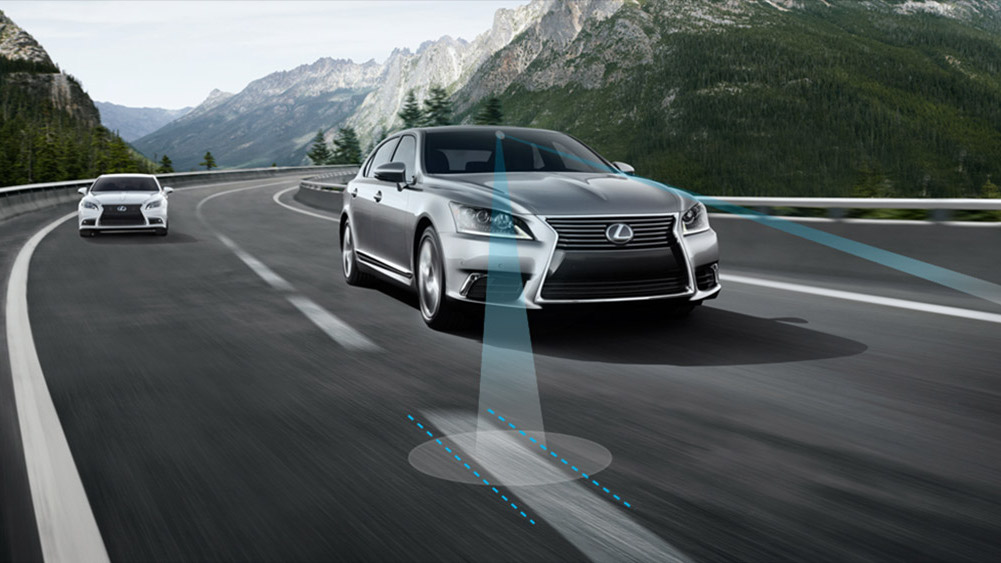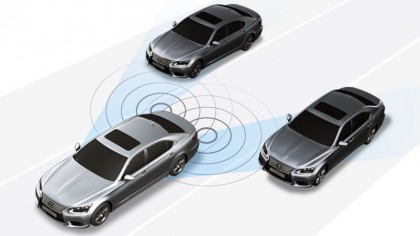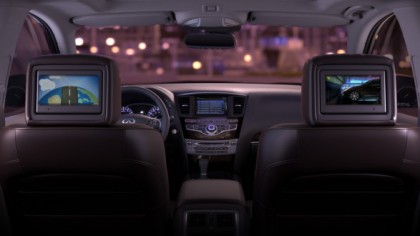How the car of the future will keep you healthy
Coffee break reminders and free ambulances

Sign up for breaking news, reviews, opinion, top tech deals, and more.
You are now subscribed
Your newsletter sign-up was successful
Short of hiring a nurse to drive with you on a commute, the modern car of today is not exactly a medical asset.
In fact, according to recent highway safety stats, collisions in the USA are now more common and there were more fatalities compared to the previous year.
Your car knows almost nothing about your medical condition, such as whether your pulse is racing, if you are having a heart attack, or if you've recently started taking heavy medication.
But that could change over the next decade, as vehicles monitor your health as you drive, determine if you are fit to drive and even intervene to prevent an accident. They might even dim the lights to fit your mood, play ambient music during stressful road conditions, and drive you to a hospital.
The recently-announced Ford S-Max is just a concept car but it can monitor your heart rate and blood sugar levels, giving a clear example of the kind of developments being made.
Current state of technology
The earliest signs of a car becoming a life saver occurred in 2003 when Lexus introduced its Pre-Collision System (or PCS). The tech, accurate within millimetres, helps to determine if a driver is paying attention.
In the 2013 Lexus LS, for example, a more advanced PCS can detect whether your eyes are open or if you're getting drowsy. If a crash is imminent, the car will alert you. If you're still not paying attention, the PCS will brake to reduce your speed.
Sign up for breaking news, reviews, opinion, top tech deals, and more.
Of course, many modern cars already offer life-saving safety measures. The 2014 Infiniti Q50, for example, can detect an imminent crash and apply the brakes, and a lane-keeping system makes sure you don't swerve off the road inadvertently.
In the 2013 Infiniti JX35, a reversing system will stop the car if there is an object or person behind you.

And in one of the most advanced systems, introduced only in the Japanese version of the Nissan Elgrand, the car knows when you are parking and can detect if you meant to apply the brake and not the accelerator. The car won't surge forward or back and will suppress the speed for you.
Mercedes offers an attention monitoring system in several models. The system watches multiple variables such as steering position and how long you've been driving. You'll see a "coffee break" notice appear in the dash if you're driving too erratically.
None of these systems actually monitor the health of the driver, though. Like any robotic device, they use pre-programmed algorithms to watch steering and lane position. Yet, the technology is available to make the car more like a roving medical kit to help us live better.
Next steps for better health monitoring
There's something much bigger in the works, according to experts and futurists. Several car manufacturers hinted at a future when the car will become more medically aware.
"In the future, cars will automatically drive you to the nearest doctor or hospital if they sense a problem with you or your passengers," says Thilo Koslowski, vice president and distinguished automotive analyst at Gartner.
"The car might suggest that the driver pulls over and takes a break or notify family members that the driver's health isn't where it should be."

One of the next steps in monitoring the drive might involve looking for sudden blackouts. Hideki Hada, a Toyota engineer, told TechRadar that sudden changes in driver attention such as a blackout are a well-known problem in the industry, and something that requires more research.
The trade-off, of course, might be whether a sudden movement, such as reaching into the back seat while driving, would trigger a false alarm that annoys the driver.
Another possibility is monitoring the pulse of a driver. Hada says that this is in an experimental stage by reading the pulse from the driver's hand on the steering wheel to determine if there is a concern. "Real-world challenges include people wearing gloves, drivers holding various locations of the steering wheel, environmental and individual variations," says Hada.

John Brandon has covered gadgets and cars for the past 12 years having published over 12,000 articles and tested nearly 8,000 products. He's nothing if not prolific. Before starting his writing career, he led an Information Design practice at a large consumer electronics retailer in the US. His hobbies include deep sea exploration, complaining about the weather, and engineering a vast multiverse conspiracy.